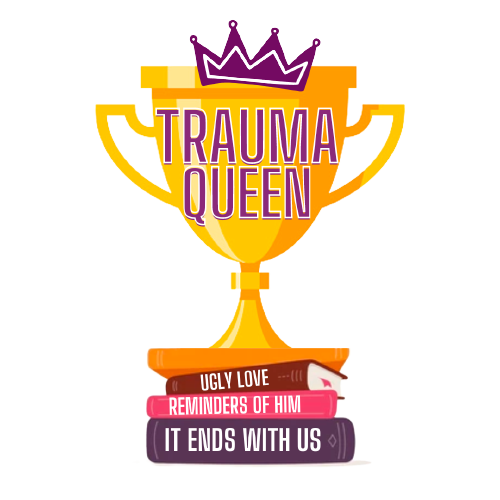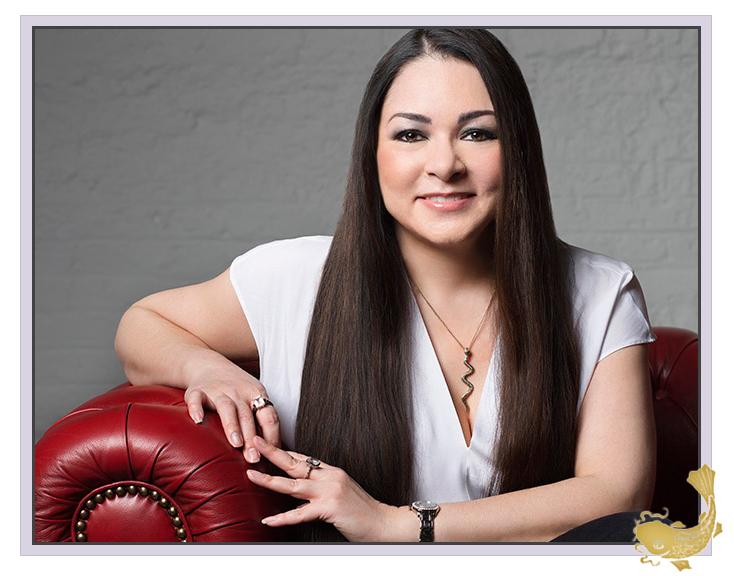Cancel Colleen Hoover
The writer who took ‘BookTok’ by storm glorifies trauma in her romance novels
September 28, 2022
As an avid reader, I was instantly intrigued when I saw dozens of TikTokers praising the works of Colleen Hoover. However, I must confess that despite the weak writing, surface-level characters and trauma porn, I was hesitant to express my opinions and admit that, in contrast to praise I saw online, her books were terrible and actually quite problematic.
When I initially picked up a Colleen Hoover book, I went along with the masses on TikTok, afraid to challenge anyone’s thoughts. My hesitancy wasn’t about the quantity of fans but the quality of them. Creators with hundreds of thousands of followers expressed their diehard love for these novels — how could I go against them? They must have some sort of credibility, right? With a bad taste in my mouth, I wasn’t sure what to think, and although I wish that I didn’t get entrenched in the opinions of strangers on social media, I sometimes do.
If you’ve never read a Colleen Hoover book, I envy you. That probably means you don’t spend all of your time glued to your phone scrolling, as most of her readership has come from TikTok. Or maybe you saw the bright red flags from the beginning. Whatever your reason, congratulations— you’re better than me.
The best way to describe a Colleen Hoover book is an adult romance novel filled with uncomfortable scenes, disappointing characters and corny lines that Hoover clearly wants to become popular quotes reposted on Pinterest. Fans praise Hoover for these “deep statements” that tend to only be reused quotes like “just keep swimming” from “Finding Nemo.”
After one (“It Ends With Us”) and a half books of genuine confusion and twisting anxiety, I slammed “Ugly Love” shut mid-book, mid-page. With over 1.6 million Goodreads reviews averaging 4.38 stars, “It Ends With Us” looked like a good starting point. Yet, I was dismayed with the romanticization of homelessness and abuse. I was even more confused about the main character, Lily, who is 23 years old in the novel, writing diary entries to … Ellen DeGeneres? Something just wasn’t clicking.
The discussion, or rather, romanticization, of trauma is not only triggering but can also be harmful to a potential reader who has experienced it. Although many adults have post-traumatic stress disorder caused by a traumatic event in their life, a lot do not receive proper treatment, whether due to the cost of therapy, lack of access to services or societal stigma. Regardless, the ones who receive treatment can experience a regression in their recovery when symptoms like codependency, control and a lack of boundaries are glorified in books.
Hoover uses violence for its shock value, rather than addressing it with any real substance.
Although it can be educational to read about these subjects, using them as plot devices is not. Hoover uses violence for its shock value, rather than addressing it with any real substance. Not only does this invalidate people’s experiences, but it belittles them too.
Sure, you could argue that victims should avoid reading books containing triggering subjects, but when there are no trigger warnings, how are they supposed to know? Let’s move past the victim blaming.
Regardless, it’s a moot point when millions of people obsess over fictional abusers on social media — platforms that are unavoidable if you want to keep up with all the latest trends, which we’re all expected to do. And when you’re not a carbon copy of everyone else on the internet, you feel left out, stuck in an endless cycle of misery and self-destruction.
These principles remain true even in more corners of the internet like BookTok, the community for book lovers on TikTok. Although BookTok can be a safe space, sometimes community members can still be harmful— whether they intend to be or not. Some creators and viewers recall details from their favorite Colleen Hoover books, such as times throughout her books when the main character, usually a woman, experiences some sort of trauma, and her love interest, a man, saves her. This problematic trope perpetuates misogynistic stereotypes.
There is an unhealthy numbness around abuse and survivors. It’s interesting how the main appeal of Hoover’s work, utilizing violence for plot twists, is the exact reason why her books are inappropriate.
There is a moment in “It Ends With Us” where Lily writes in her diary (yes, to Ellen) about how her father beat her mom and then her. Moving on, Hoover begins to write about how Atlas, a homeless boy living in Lily’s backyard, comforted Lily even while he was freezing, saying, “I might have thought it was sweet if it wasn’t so sad.” Not only is this a specifically triggering scene to people who have faced abuse, but the fact that Hoover gives Atlas a savior complex throughout the story while Lily faces abuse is harmful.
While many TikTok users applaud Hoover’s “honesty” in “insane situations,” many others, including myself, disagree with that claim. It’s a bit dismissive to chalk up real abusive circumstances to just an “insane situation.”
Furthermore, readers using Hoover’s exploitation of mistreatment as “escapism” shows a lack of awareness about these sensitive topics.
There is an unhealthy numbness around abuse and survivors. It’s interesting how the main appeal of Hoover’s work, utilizing violence for plot twists, is the exact reason why her books are inappropriate.
I don’t say this to sound better than anyone, but I hope I never find enjoyment in glorified suffering. I also hope to never write about it. If all you take away from reading this is to reconsider the media you consume and have more sensitivity around trauma, that’s a win for me.
Unfortunately, abuse in the real world won’t stop anytime soon, but we can at least stop glamorizing it. Meanwhile, ask yourself, why do you obsess over traumatized characters? Also, why do those characters love Ellen DeGeneres? You might not have immediate answers to these questions, but asking them is a good start.















Kathryn Grimes • Aug 24, 2024 at 1:29 am
The dry ink in her name is slanderous! Acting like week women are the ones who don’t see it coming. Worse she say women are abusers to! Dear God, yeah join the guilty ones who put those innocent women behind bars by writing down the abusers milipulative b.s.. Yeah women get out of violent marriages by divorce, lol, no b! It’s a fight for our lives! Flipping C.S. you’ve lost touch with reality and are begging for the boogie man all night long!
Anna • Aug 6, 2023 at 11:27 pm
I’ve been greatly disappointed by several authors in recent years. Their characters are too often confused, needy, and childish in their approaches to relationships. It’s as if no one knows how to communicate clearly and honestly…the hemming and hawing, not to mention unnecessary drama, are quite off putting.
Growing Pains • Apr 27, 2023 at 3:22 pm
The writer of this article, Kelly Schwint, needs to chill out with the bs. Cancel Colleen Hoover? Really, how immature of you. The author is writing FICTION novels with fictional characters. I don’t see anyone ever mentioning to cancel the authors who write horrors and twisted crime novels and some how you are worried about the fictional stories Colleen writes? Some of you guys who agree with this article shouldn’t be reading Colleen Hoover books at all and should just stick to reading kid friendly picture books until you are mature enough to handle fictional stories without confusing them with reality. Colleen Hoover is a great author and has attracted millions of readers. Quit crying a river about canceling an author and actually Grow up!
Ashley • Feb 1, 2023 at 10:10 am
I agree. Colleen Hoover is overhyped. She is a mediocre writer at best. The story is supposed to be about domestic violence, the whys behind it, who it effects, and how the characters can begin to heal from it. But instead we get a romance novel with peppered in scenes of violence as a “hook”. All its emotion and character development (or lack there of) is shallow. This novel is like reading the script to Hallmark Channel’s movie of the week. Colleen Hoover writes literary junk food.
Taylor • Jan 7, 2023 at 1:53 pm
I just think you guys are really missing the point that these are FICTION novels. That’s it. That’s the point. She’s not validating/ glorifying anything. She’s writing a story. Everyone chill out.
Mila • Dec 23, 2022 at 5:53 pm
Did you even read the book? First of all, Lilly is 24 in this book, not 23. Second of all, the diary entries to Ellen are from when she was 15 and she is reading back over them. The characters Lilly, Ryle, and Atlas are based on her mother, father, and stepfather. Who are you to invalidate her interpretation of their relationships? The book is about ending a cycle of trauma and domestic abuse and there are resources to survivors in the back of it.
Dee • Dec 6, 2022 at 8:29 pm
What the actually this article is horrible and complete bs.. the author of this article needs a big reality check.
Colleen Hoover writing and books hit a new level, for some one who has read a lot of her books, especially all your perfects for some one who struggles with infertility this book gave a great example of what can happen in a marriage when communication is lost. I’m happy to cancel this article and the writer here.. get a grip!
Quinn • Nov 12, 2022 at 10:17 am
Alr if you guys don’t think she should be cancelled for her writing I understand and agree with that but she should be cancelled for shutting out the girl who came crying to her after Colleen’s son raped her.
Mackenzie • Jan 26, 2023 at 11:36 am
Clearly you believe everything you read on the internet, without extra research..
victoria • Nov 10, 2022 at 9:48 am
the whole part about “she wrote to ellen degeneres when she was 23 years old” shows how little you understood from the book. the scenes of her “writing” to ellen are her READING her past diary entries from when she first met atlas. and as for the abuse it shows how manipulative the abuser can be which allows for a more realistic feel for the reader. as someone who has had past experiences with an abuser i can tell you that this book shows the realness of the relationship and how manipulative the abuser can be.
bruh • Nov 6, 2022 at 10:46 pm
“I was even more confused about the main character, Lily, who is 23 years old in the novel, writing diary entries to … Ellen DeGeneres? Something just wasn’t clicking. “
…
“Also, why do those characters love Ellen DeGeneres? “
wtf?? because it gives lily a deeper characterization? and prevents her from being a one-dimensional character? tells us a bout her quirks and childhood experiences?? she only wrote abt ellen degeneres when she was 23 bc she used to when she was like, what, 16 when it was literally a way for her to journal and display her feelings to the readers. i at least partially agree with other things you say here but you make this *KEY ASPECT OF THE BOOK TO SHOW US ATLAS’S AND LILY’S BACKSTORY* sound like a random tangent added in there for comic relief when that’s absolutely not what it is
avery haberkorn • Nov 2, 2022 at 5:50 pm
she wrote the books on relationship violence based on what her mother as been through. y’all are too sensitive 😭😭
Hz • Nov 1, 2022 at 12:46 pm
Coz you have not been in any of those situations. You lack maturity, experience, and empathy towards someone’s situation and their actions towards it. Millions of people relate to the stories coz most of them have either seen or lived those moments. Respect. Hope you will understand one day 🙂 <3
Quinn • Nov 12, 2022 at 10:20 am
How can you know she hasn’t been in any of those situations? As someone who’s been in all of those situations you never know with people
Laura • Feb 22, 2023 at 6:33 pm
@Hz – so by that logic, we should stop watching war films, for example, since some of us may have relatives who died fighting in a war? We should stop everything in case someone is offended because they might find it uncomfortable? Ouch.
Read Farenheit 451. It was written about people like you.
Jane • Oct 28, 2022 at 9:35 am
The way y’all tryna cancel Colleen Hoover is hilarious, and then y’all start reading horror books that have VIOLENCE, RAPE, TORTURE, and more when y’all don’t like Colleen Hoover for the SAME thing
Sarae Smiel • Nov 27, 2022 at 10:20 am
EXACTLY!!!!!
Laura • Oct 19, 2022 at 3:04 pm
What a thoroughly stupid article. If your reaction to flawed characters and disturbing situations is to cancel them then you aren’t old or mature enough to read the book in the first place. I sincerely hope you did not receive payment for writing this reactionary garbage.
Krista • Sep 30, 2022 at 10:44 pm
I understand not enjoying her writing because of cheesy one liners, or if you think her characters lack depth.. but I will never understand a call to cancel someone telling a story. It’s no authors job to educate their readers. Fiction is for entertainment, even if that fiction contains sad and traumatic things that happen to real people. It seems like no research was done on your part as the author of this article. People write what they know, Kelly. SMH